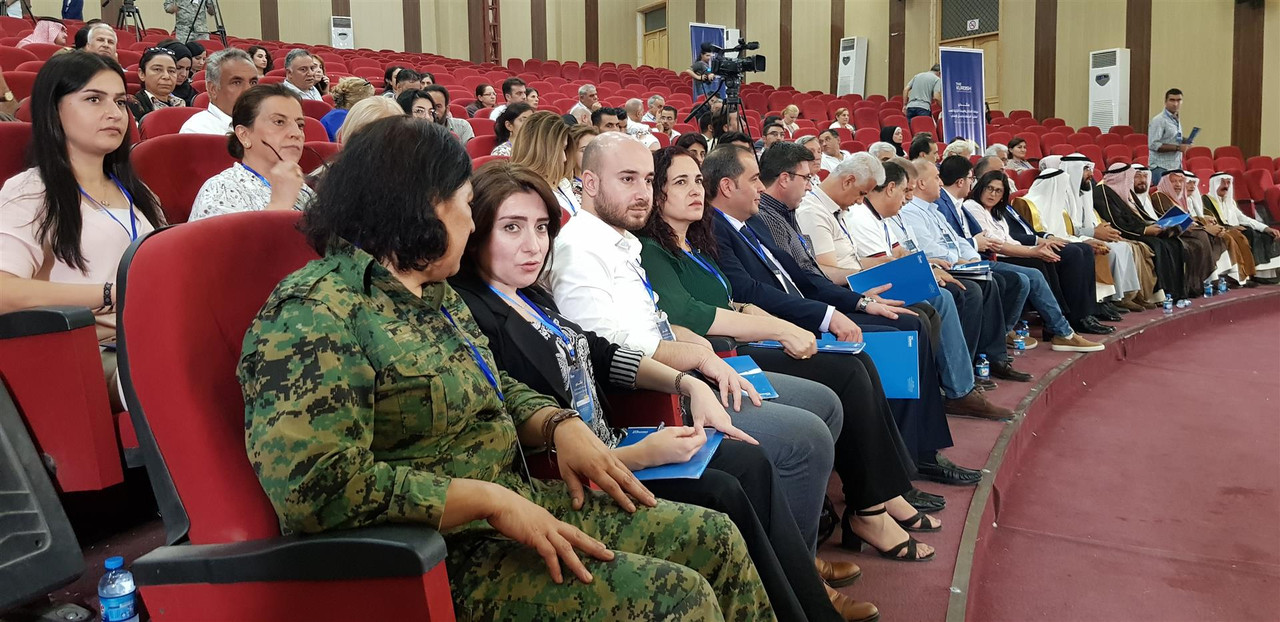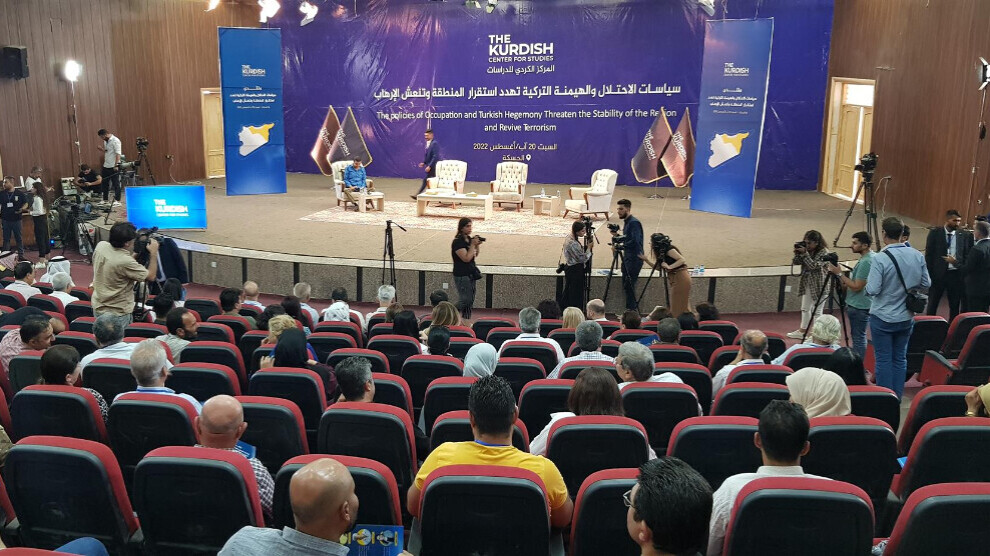Under the slogan “The policies of occupation and Turkish hegemony threaten the stability of the region and revive terrorism”, the Rojava-based Kurdish Center for Studies is hosting a dialogue workshop today. Around 200 representatives of administration, politics and defence, leaders of civil society and local tribal confederations as well as intellectuals are attending the workshop in the north-eastern Syrian city of Hesekê in order to find regional and international solutions to obstacles in front of the Autonomous Administration of North and East Syria (AANES) and the Syrian Democratic Forces (SDF) in the context of the political and military realities in the region.

Turkey has been announcing another invasion of the autonomous areas for some time and has increased its incessant attacks on the region after the Astana summit in Tehran on 19 July. Since the meeting between the Russian and Turkish leaders in Sochi on 6 August, drone and artillery attacks have escalated, especially in the areas east of the city of Serêkaniyê (Ras al-Ain), which has been occupied since 2019. Several times since then, Recep Tayyip Erdogan has vowed to "complete" the occupation zone along the Turkish border. So far, neither Russia nor the USA have given Turkey the green light for a new invasion of Rojava. But the major powers present in Syria seem to have agreed to the permanent bombardment of the autonomous region by drones and artillery, suspects the Autonomous Administration. At the same time, there are signs of rapprochement between the Turkish and Syrian governments.
The aim of the dialogue workshop is to analyse the various dimensions of this problem in northern and eastern Syria and its complexity through joint discussion, and to highlight the resulting challenges. The event began with welcoming speeches. Among the speakers announced are the Vice Chairman of the Autonomous Administration of North-East Syria, Bedran Çiya Kurd, the YPJ commander Nûjîn Dêrik and the Iraqi author Ali Sharaf. At the end, the participants are expected to agree on a declaration on the central topics of the meeting.
















